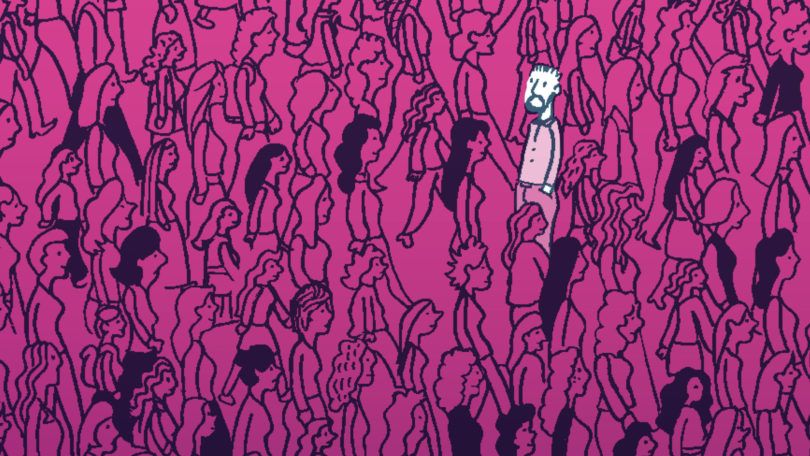45 years of International Women’s Day: ‘We must stay alert’
-
 Illustratie: Roel Venderbosch
Illustratie: Roel Venderbosch
Since 1988, the Radboud Gender & Diversity Studies network has paid attention to International Women’s Day. Based on the themes discussed on this day, what conclusion can we draw when it comes to the progression and status of women’s rights? ‘As long as these problems exist, they will be fought.’
News articles, lectures, and lots of events: it seems like International Women’s Day receives more attention every year. Yet this day has been around for quite some time already. The ‘Day of the Woman’ was first proclaimed in 1910 at an international women’s conference in Copenhagen. However, it was only until the United Nations recognized the 8th of March as an official day of celebration in 1978, that we came to know of this day as International Women’s Day, including in the Netherlands.
Since 1988, Radboud University has focused on and celebrated International Women’s Day. By discussing a current issue, the Radboud Gender & Diversity Studies Network draws attention to the position of women and other gender-related issues every year. Garjan Sterk, the coordinator of the interfaculty network, is one of the organisers of this day in Nijmegen. Looking back at past Women’s Days, a few things stand out to her.
Recurring themes
‘Many themes make a comeback every other year, just with a different look’, Sterk says. ‘Sometimes it is a different perspective, and sometimes it is a new addition to the topic: you can look at it as a sort of update to the current situation.’ Take female leadership, for example. In 1990, the theme was ‘Females in politics’, and in 2016, there was a focus on females in executive positions.
Sterk adds: ‘In 2004, the working conditions for women were a point of discussion, whereas in 2018, the emphasis was put specifically on sexual harassment in the workplace.’ This year, the Radboud Women Professors Network again draws attention to women and the working environment: this time discussing how motherhood relates to trying to make a career. ‘As long as these problems exist, they will be fought’
Younger generation
According to Sterk, the younger generation has become more involved over the years. ‘In the past, activities were organised for Women’s Day, but mainly on a local level. After the eighties and nineties, the second feminist wave lost momentum, and society became less interested in the topic overall.’ Women at that time still fought for equal rights, but it happened more in the background. Rights were fought for in political policy and in the academic environment, but less so on the streets or in the neighbourhood.
‘Nowadays, the younger generation has become active in battling social injustice in all its forms, including gender inequality. They find each other on social media and organise events together.’ For instance, last year hundreds of people gathered on the Dam (large square in the centre of Amsterdam, ed.) after the amendment of the abortion law in the United States and demonstrations were organised to bring attention to the state violence of the Iranian government against women’s rights activists.
‘There is also a gender pay gap in our country’
Still, the fear of losing our own rights is not as prominent in the Netherlands, Sterk points out. ‘But there is also a gender pay gap in our country, there are still too few women in executive positions, and women are still treated differently compared to men in politics. For example, take a look at the witch hunt targeting Sigrid Kaag. We must stay alert. We have seen recently that our rights and freedoms should not be taken for granted, as they can still be taken away.’
Influence of the pandemic
One topic that Sterk wants to focus on in the future is the inequality that is a result of the pandemic. ‘Female scientists have published very few articles during the time they had to work at home, whilst the productivity of men increased by around one-third during this time. This implies that in such a situation taking care of the children and household chores are still thought of as the responsibility of women.’
With regard to health, women also faced more consequences of the pandemic, as women are overrepresented in hospitals and nursing homes. In addition, from a medical perspective, women have a higher chance to suffer from long covid. ‘To fully recognize the influence of the pandemic on gender inequality, we have to wait until more research becomes available. Maybe this will be the theme for next year’s International Women’s Day.’
Translated by Sophie Verhoeven




